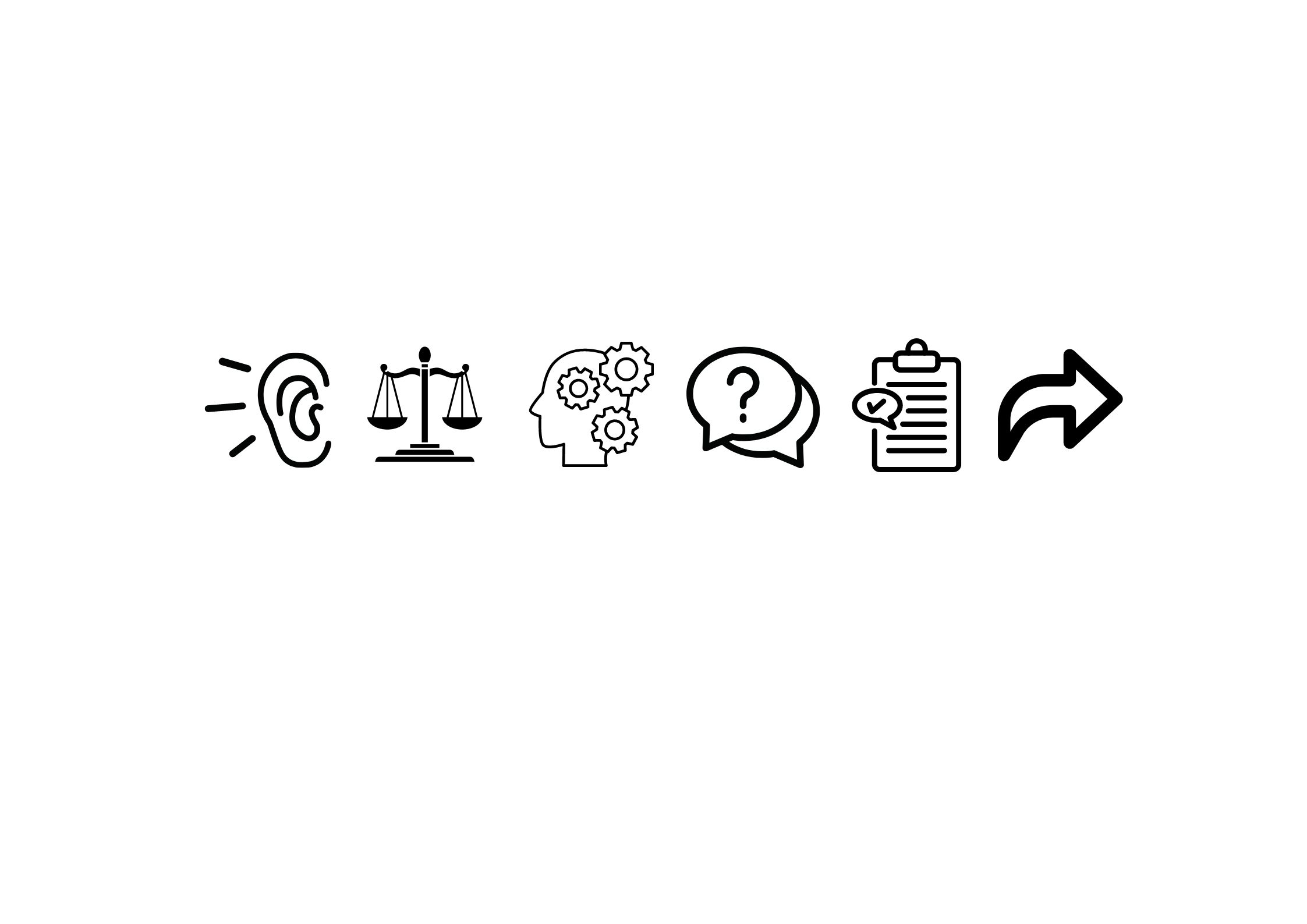
Parenthood! It is a wild and beautiful journey, is it not? For many of us, it commences with the dreamy vision of tiny clothes and baby giggles, with the belief that love and cuddles are all that is required. However, somewhere around the age of two, a delightful new personality emerges, along with the first signs of defiance. Suddenly, that adorable little human is saying “NO!” with enthusiasm, talking back, and pushing boundaries regardless of the circumstances. This is where the real work begins, where discipline serves as a crucial tool, helping our children understand limits, learn self – control, and ultimately, grow into responsible human beings.
But what occurs when the very foundation of this discipline — the parents themselves — do not see eye – to – eye? Imagine this: a father, perhaps driven by a strong belief in consequences, forces his son to go to school the day after staying up late secretly watching Netflix. A seemingly clear – cut disciplinary action, right? Yet, his wife views it as far too harsh a consequence, sparking a classic parental disagreement. This is not merely about Netflix or school; it is a window into the challenging, yet incredibly common, landscape of parental conflict over discipline.
Clinical psychologist Ruth Peters wisely notes that it is not only normal but actually “inevitable” for parents to disagree about discipline. It is almost a foregone conclusion, considering the myriad factors at play. Consider the following: who spends the most time with the kids, witnessing their daily antics and triumphs? How were each of us raised? Who actually caught the child in the act of whatever “dastardly deed” just took place? And what about the child’s own behavioral history? Even our current stress levels can significantly influence our reactions, especially when we are debating the degree of discipline to apply.
Perhaps the most profound influence, however, originates from our own childhoods. We tend to either wholeheartedly embrace our parents’ disciplinary methods or completely reject them, and these deeply ingrained ideals profoundly shape how we approach discipline in our own homes. It is a fascinating and complex interplay of personal history and present – day reality. Yet, it is a conversation that, surprisingly, few adults truly engage in before getting married and having children.
When parents find themselves at odds over discipline strategies, or even their fundamental approaches, it creates a perplexing situation for their children. This absence of a united front can easily result in inconsistent parenting and mixed messages regarding expectations. Children, being the astute little observers that they are, quickly detect this disunity. They become anxious, uncertain about the rules and what truly holds significance. This anxiety, in turn, can, unfortunately, contribute to further behavioral issues.
Even more challenging is the fact that kids often learn to manipulate these disagreements. They might pit one parent against the other, exploiting the discord to avoid accountability. When parents are arguing among themselves, the focus inevitably shifts away from where it should be—on the child’s behavior. If one parent declares, “Go to your room!” and the other interjects with, “All you have to do is tell your sister you’re sorry,” the child is left completely bewildered, unsure of what action to take.
The consequences of such disagreements are far – reaching, extending beyond merely the child’s behavior. They can create substantial stress within the family unit and, if severe enough, negatively affect the marital relationship itself. An unsettling home environment impacts everyone, with the child ultimately suffering from the instability and confusion. It is evident that these disagreements have tangible negative consequences for families, making it imperative to find effective solutions.
Part of understanding these clashes involves recognizing that discipline is far more than just punishment or control. It is about instilling self – discipline and self – control, enabling children to make healthy choices independently. It is about providing structure, guidance, and boundaries that assist them in learning socially acceptable ways to behave. Studies suggest that disciplined children tend to exhibit fewer behavioral problems, achieve better academic performance, and possess higher emotional intelligence.
Read more about: The Professional Educator: Unpacking the Multifaceted Roles, Core Competencies, and Global Realities of Teaching

So, why do parents often find themselves on different sides of the disciplinary spectrum? A significant factor lies in their parenting styles, which broadly classify a parent’s attitude and methods. Let us explore three common approaches: authoritative, permissive, and authoritarian.
The authoritative parenting style strikes a balance, highlighting clear boundaries, rules, and expectations while simultaneously offering abundant emotional support and warmth. Parents who adopt this style are firm yet fair, actively listening to their child’s perspective, encouraging independence and self-expression, all the while maintaining consistent standards of discipline. Children raised by authoritative parents tend to be more self-reliant, confident, academically successful, and possess higher levels of emotional intelligence. They are more likely to make responsible choices because they have been taught how to think independently. An example might be setting limits on screen time, such as after an unsupervised Netflix viewing session, while also providing encouragement when a child reaches a certain milestone.
In contrast, the permissive parenting style involves indulging children with few rules or guidelines, with parents prioritizing minimal control over their child’s behavior. Parents adopting this style might have difficulty enforcing boundaries, fearing that saying “no” too often will upset their children. Children raised in this environment may receive little guidance regarding appropriate conduct, leaving them feeling insecure about handling difficult situations later in life. They often struggle with regulating emotions, managing impulse control issues, and making decisions. This approach can lead to lower academic performance and even place children at risk of mental health issues such as anxiety due to the lack of structure. An example could be allowing children to make all decisions, from what they eat to how long they stay up at night, without parental input—a stark contrast to the father’s decision in our Netflix scenario.
Then there is the authoritarian parenting style, characterized by strict adherence to rules and guidelines with very little room for flexibility or negotiation. Parents who embrace this style are often perceived as cold or detached, focusing rigidly on obedience rather than fostering emotional connection. Child input in decision-making is minimal, and disobedience is frequently met with harsh punishment. Children raised in such an environment may experience developmentally inappropriate levels of anxiety, depression, and aggression. They tend to lack self-confidence, having been denied opportunities to practice self-reliance or autonomy. An authoritarian approach might involve setting rigid academic standards and severely punishing any failure to meet them—a disciplinary approach that the wife in our Netflix example might find similar to her husband’s harsh consequence.
Read more about: Real Talk, Real Struggles: What TV’s ‘Mom’ Teaches Us About Imperfect Parenting and Hard-Won Redemption

Understanding these different parenting styles is crucial, not only for parents but also for anyone working with families. While each style has its advantages and disadvantages, parents must reflect on their values and goals to develop a style tailored to their child’s unique needs. This foundational understanding helps elucidate why disagreements, such as the one over the Netflix incident, even arise.
Beyond parenting styles, the root of disciplinary disagreements often lies in deeper, personal factors. One primary reason is the difference in upbringing and cultural background. We all grow up exposed to varying parenting styles, traditions, and beliefs that shape our perspectives on how children should be disciplined. A parent raised in a strict household with harsh punishments might naturally lean towards a more authoritarian approach, while one from a permissive background might be more lenient. Cultural differences also play a role; some cultures prioritize obedience and respect for authority, while others value independence and self-expression. These ingrained perspectives are powerful forces.
Personal beliefs and values also significantly contribute to disagreements. Some parents hold strong convictions about what is right or wrong in raising children, which can directly conflict with their partner’s views. For instance, one parent might believe that spanking is an effective form of discipline, while the other deems it harmful and ineffective. Similarly, one might advocate for greater child freedom in decision-making, while the other prefers stricter rules. These fundamental differences in ethos can be challenging to reconcile.
Read more about: Nick Cannon Just Revealed Which Ex He Wishes He Had A Kid With (And It’s Christina Milian)

Finally, simple misunderstandings or a lack of communication can exacerbate these conflicts. When parents fail to openly discuss their expectations concerning discipline or how they intend to enforce it, miscommunication can easily escalate into arguments. If neither party is genuinely willing to listen or compromise, even a minor misunderstanding can develop into a significant point of contention. Understanding these root causes—whether they stem from different priorities or deeply held beliefs—is essential. It enables both individuals involved in parenting to better understand one another, to comprehend where their partner is coming from, and to collaborate towards a unified approach for their family’s well – being. Ultimately, when parents begin to bicker and disagree about what to do, how to do it, which is right, whose approach is most effective, or what is too lenient or too harsh, children are deprived of critical life lessons. In every two – parent household, it requires both parents to enforce the rules and ensure that disciplinary actions are carried out. The focus of discipline must always remain on the children and their growth.
Navigating the turbulent waters of parental disagreements over discipline can seem like an interminable battle. In the first part of our discussion, we examined why these clashes are so prevalent, often rooted in our own childhoods, diverse parenting styles, and fundamental beliefs about raising children. However, simply understanding the ‘why’ is not sufficient. Our shared objective as parents is to raise well – adjusted, confident children, and to achieve this, we need to move beyond conflict towards a realm of mutual understanding and consistent action. This section will delve into practical, sincere strategies for bridging those disciplinary gaps, ensuring that we present a united front for our children’s ultimate well – being.
One of the most potent tools in any relationship, particularly in co – parenting, is open communication combined with active listening. When differing opinions about how to handle a situation, such as the one where a father insisted on school attendance after a late – night Netflix binge, arise, both parents need to feel that they have been heard. This means genuinely being willing to express your thoughts and ideas clearly, without interruption or the taint of judgment. It is about recognizing your partner’s point of view, even if it seems vastly different from your own perspective.
Read more about: The Dress That Broke the Rules: Unpacking the Battle Over Marital Expectations and Who’s Wrong When a Wife Says No

Active listening transcends mere word – hearing; it entails paying genuine attention to what your partner is expressing, posing thoughtful questions for clarification, and subsequently summarizing your understanding to ensure that both of you are in alignment. Imagine how much more effective your approach to that Netflix incident would have been if both parents had fully attended to each other’s concerns and reasons. By engaging in this manner, parents can foster an atmosphere of profound respect and trust, which serves as the cornerstone for resolving any disciplinary disagreement.
Crucially, these pivotal discussions should always take place out of the watchful gaze and hearing of your children. As clinical psychologist Ruth Peters sagely advises, never discuss these types of issues in front of your kids. Undermining your spouse by overruling their decision or making critical remarks in your child’s presence not only confuses the child but also actively discredits your partner in their eyes. Children are extremely perceptive; they swiftly learn to exploit disunity, pitting one parent against the other to evade accountability. Remember, when parents are arguing among themselves, the focus inevitably shifts away from where it should be—on the child’s behavior.
While presenting a united front in front of the kids is of paramount importance, it is also true that children can derive benefits from observing their parents handle disagreements respectfully. If a spontaneous discussion needs to take place, ensure that both of you are “fighting fairly” by controlling emotional responses. Peters even suggests resorting to something as simple as a coin toss if necessary to ensure that the children witness teamwork rather than conflict. The objective is to demonstrate to them that even when you disagree, you ultimately collaborate.
Read more about: Beyond the Veil: Unearthing 13 Highly Intriguing Forbidden Destinations

Another potent strategy for parents with differing discipline styles to discover common ground is through compromise and negotiation. This is not about one parent “winning” and the other “losing”; rather, it is about both parties being willing to “make a concession” to arrive at a solution that genuinely benefits everyone involved, most notably, the child. For example, if one parent firmly believes in employing timeouts for specific behaviors, while the other favors natural consequences, a compromise could be achieved where timeouts are implemented for certain actions, and natural consequences for others.
Negotiation also necessitates an understanding of each other’s priorities. Perhaps one parent places greater emphasis on academic responsibility, while the other prioritizes nurturing independence. By openly discussing these fundamental priorities, you can reach compromises that satisfy both sets of needs to the greatest extent possible. This is also related to the concept of yielding to the parent who has a stronger conviction about a particular issue. If one parent is profoundly concerned about, for instance, a sleepover, and the other is fine with it, the parent with the stronger feeling might request support: “I feel extremely strongly about this. I would like you to back me up on this, even if you do not share the same perspective.” This demonstrates immense trust and respect within the partnership.
An excellent proactive measure towards presenting a united front is to sit down together and draft a household rulebook. This is not about suppressing spontaneity but about creating a shared framework for discipline. Both parents are likely to have certain non – negotiable principles, especially concerning education, respect, health, safety, and honesty. Identifying these shared values and agreeing on a comprehensive action plan in advance means you will not be taken aback and disagree in the heat of the moment. While you cannot anticipate every childhood misdeed, this rulebook functions as a dynamic document, enabling you to add notes and expectations as new behaviors emerge.
Read more about: Unmasking You: The Little Things That Secretly Reveal Your True Personality

This rulebook not only offers clarity to children, enabling them to know precisely what to anticipate, but it also eliminates the necessity for impulsive, potentially conflicting disciplinary actions. It establishes a dedicated space for both parents to engage in detailed and private discussions regarding what they deem constitutes appropriate discipline for various situations. It acknowledges that parents may handle matters differently when one is primarily responsible for staying at home with the children as opposed to the other, and that such differences can sometimes originate from self – guilt or being constantly immersed in behavioral scenarios. The key is to sustain an open – ended discussion and ensure a fair playing field for children so that they consistently understand what is expected of them.
What should be done when open communication, active listening, compromise, and negotiation simply prove insufficient? At times, deeper issues are at play—psychological factors influencing parenting behaviors or entrenched family dynamics passed down from previous generations. In such circumstances, seeking professional assistance from a qualified therapist or counselor specializing in family therapy can be extremely judicious. A professional provides an objective viewpoint, offering invaluable tools and techniques to assist parents in resolving their differences. It also creates a secure, non – judgmental space where frustrations can be expressed and comprehended. Seeking this type of help is not an indication of failure; rather, it is a testament to your commitment to your family’s well – being, resolving conflicts that might otherwise be insurmountable.
Beyond resolving inter – parental disagreements, it is crucial to equip ourselves with effective discipline strategies that can be implemented consistently, even with differing styles. Discipline, as we are aware, is not merely about punishment; it is about fostering self – discipline and self – control.

One highly effective approach is positive reinforcement. This strategy centers on rewarding desirable behavior rather than solely punishing negative actions. The objective here is to encourage a child’s positive actions and genuinely foster their self – esteem. It involves reinforcing good behavior and cultivating a sense of responsibility, moving away from relying exclusively on control. Consider this: if your child excels in school or completes a task without being prompted, a bit of additional attention, sincere praise, or even allowing them to select the family movie for the evening can work wonders. This method establishes a positive home environment where children feel appreciated and acknowledged for their efforts, making them more inclined to repeat desirable actions.
Then there is the time – out method, a technique that entails temporarily removing a child from a challenging situation to enable them to cool down and reflect on their misbehavior. This is not intended as a punishment but as a structured opportunity for self – regulation. It aids in setting clear boundaries for inappropriate behavior while teaching children crucial self – control. When employing time – outs, it is essential to clearly communicate why they are being administered and what they need to do differently in the future. For example, if a child hits a sibling and continues to do so instead of apologizing, a brief period in their room, free from distractions, can provide the necessary space for reflection. However, bear in mind to use this method sparingly, as excessive isolation could cause a child to feel frightened or unwelcome.
Another potent disciplinary tool is the natural consequences approach. This method enables children to learn directly from the inherent outcomes of their actions, rather than from an imposed punishment. The core concept is to allow your child to experience the real – world results of their choices, which often serves as a more impactful lesson than a consequence they might simply attempt to avoid. For instance, if a child refuses to wear a coat on a cold day and subsequently falls ill, experiencing the discomfort of the illness and perhaps a doctor’s visit teaches them more effectively about the importance of dressing warmly than any lecture ever could. This approach assists children in connecting good decisions with positive outcomes and poor decisions with negative ones, fostering internal accountability.
Each of these strategies—positive reinforcement, time – outs, and natural consequences—has its own merits. As parents, our paramount task is to raise responsible and well – behaved children. Therefore, it is of utmost importance that we understand these different approaches and select the ones that align best with our family’s values and our child’s unique needs, always keeping their overall well – being in the forefront.
Read more about: The Professional Educator: Unpacking the Multifaceted Roles, Core Competencies, and Global Realities of Teaching

Beyond specific discipline methods, the manner in which parents handle conflict, particularly concerning parenting decisions, is equally crucial. As the old saying goes, “It’s not what you say, but how you say it.” Conflict is an inevitable aspect of any close relationship, yet approaching arguments in a healthy way is pivotal to preventing escalation and making progress toward solutions.
A common pitfall to be avoided is the blame game and criticism. When discussing parenting strategies, if your partner disagrees with your approach, it is exceedingly easy to feel attacked. Instead of pointing fingers or attributing blame for not being on the same page, recognize that everyone brings a distinct parenting style and perspective to the discussion. A simple yet potent shift is to employ “I” statements rather than “You” statements. For instance, instead of saying, “You’re always too strict,” try, “I find myself concerned about our child’s fear of being punished when circumstances become challenging.” This phrasing conveys your feelings without assigning blame, fostering a more constructive dialogue. Remember, your children are constantly observing; witnessing you treat each other with respect, even amid disagreement, teaches them invaluable healthy communication skills.
Equally significant is focusing on solutions rather than dwelling on problems. When confronted with disagreements over discipline, productive conversations arise when both parents redirect their energy from what they are dissatisfied with to how they can collaboratively strive for a resolution. Each parent should propose realistic options they believe could be effective, either independently or as a team, before determining the most suitable path for their child. This proactive, forward – looking approach prevents the conversation from descending into a frustrating impasse.
Finally, maintaining unwavering respect for each other’s opinions is of paramount importance. Parents bring unique life experiences and perspectives to the discussion when deliberating discipline methods. Even if your partner’s opinion seems less valid to you, it is essential to grant them a fair and attentive hearing. Taking turns to speak and actively listening—truly listening—to what the other person has to say can avert misunderstandings and cultivate a profound sense of mutual understanding. It bears repeating: both parents share the same ultimate objective—raising happy, well – adjusted children. A healthy approach to conflict resolution, founded on open communication, a focus on solutions, and mutual respect, is indispensable for achieving this goal.
Read more about: From Burger Heiress to Billion-Dollar Visionary: Inside Lynsi Snyder’s Life and Her Strategic Expansion of In-N-Out Burger

In the journey of parenthood, disagreements over discipline are not merely common; they are an inevitable aspect. However, bearing in mind that parenting is fundamentally a collaborative endeavor can transform these challenges into opportunities for growth. When parents work in concert, they create a stable, consistent, and predictable environment—a veritable haven—for their children. This consistent application of discipline is absolutely vital for shaping behavior, and a united front ensures that children comprehend expectations and consequences clearly, fostering a sense of security and predictability.
Beyond the immediate benefits for the child, this collaborative approach fortifies the marital relationship itself. Parenting is often stressful and exhausting, but confronting it together and providing emotional support to each other through tough times makes a significant difference. By endorsing each other’s decisions and engaging in open communication about any disagreements that emerge, parents not only strengthen their own bond but also bestow upon their children the invaluable gift of consistency.
Ultimately, consistent application of discipline enables children to develop into well-adjusted adults capable of making responsible decisions independently. It imparts to them self-discipline and the crucial understanding that actions have consequences. This consistent guidance also aids in building their self-esteem, endowing them with the confidence to make sound choices. While finding common ground when discipline philosophies diverge can be challenging, focusing on open communication, compromise, and an unwavering commitment to collaborative work ensures that parents can raise well-behaved children who are confident, responsible, and ready to navigate the world independently. This consistency is, without question, the key.



